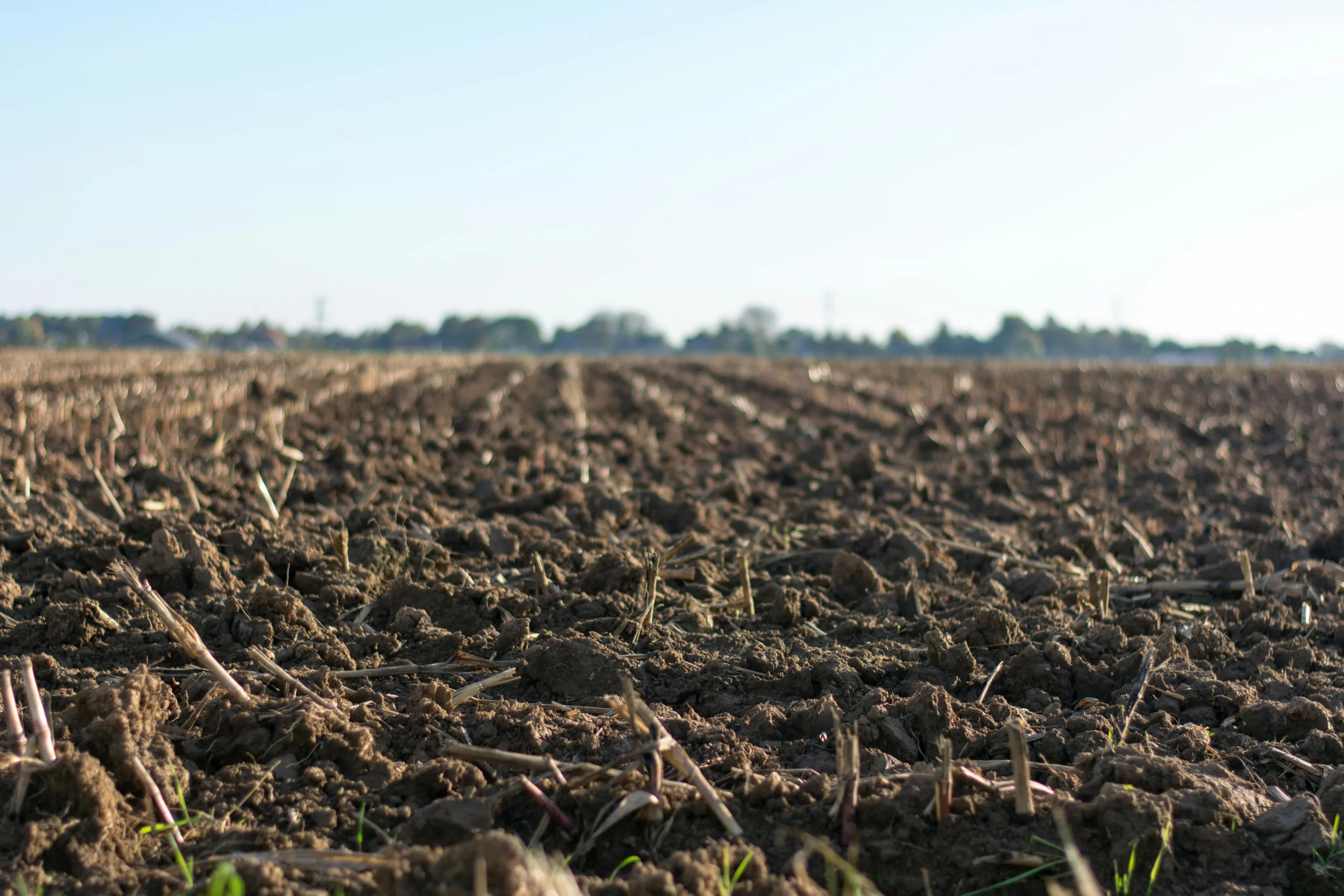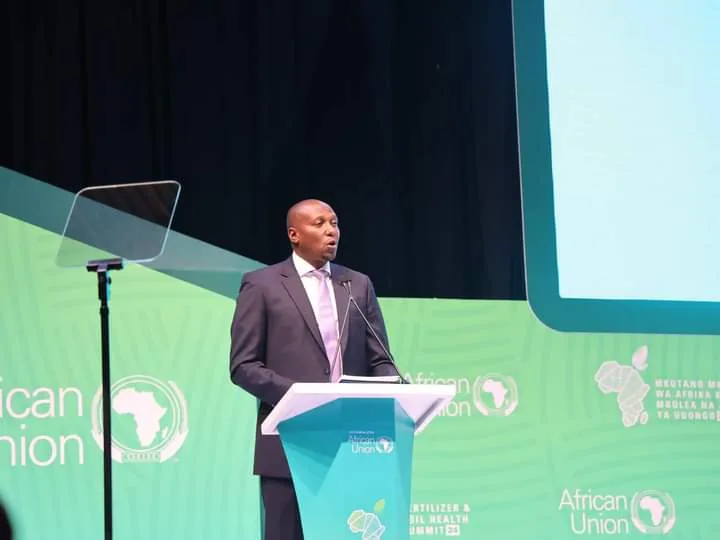By Phumelele Mkhonta
ESWATINI’S soil health has been compromised. This is according to Prime Minister Russell Dlamini. He shared this at the Africa Fertilizer and Soil Summit in Nairobi, Kenya during his deliberations.
The Eswatini Premier shared this in front of other African Union Heads of State at the summit which commenced on May 7, 2024 and ended on May 9, 2024.
Addressing the delegation, the PM said Eswatini, like other countries in Africa, promoted the use of synthetic fertilizers due to their cost-effectiveness and efficacy.
“The use of synthetic fertilizers contributed to the improvement in agricultural productivity. However, this resulted in a decline in soil health, underscoring the need to strike a balance between synthetic and organic fertilizers,” said the PM.
ALSO READ: Prime Minister jets out to Kenya for Africa Fertilizer and Soil Health Summit
Synthetic fertilizers are made from human-made compounds like ammonium nitrate, ammonium phosphate, and potassium sulphate. At the most basic level, synthetic fertilizers feed the plant, and organic fertilizers feed the soil.
Synthetically derived fertilizers are manufactured from minerals, gases from the air and inorganic waste materials. Fertilizers derived from organic sources obtain their nutrients from natural sources such as microbes, organic waste, and other similar materials.
His Excellency further explained that Eswatini has established initiatives that prioritise soil health and responsible fertiliser use through an integrated neutral management approach.
“A good example of this is that in our national envelopes are inscribed with the motto ‘The soil is our greatest asset. Help conserve’,” said the PM.

He further said the country conformed to the Abuja Declaration.
According to the African Union website, the Abuja Declaration on Fertilizer for the Africa Green Revolution is a continental strategy to reverse the worrying trend of poor productivity of the African soils.
The Declaration focused on key targets required for agricultural growth, food security, and rural development in Africa, with a focus on the role of fertilizers. It recommended raising the use of fertilizers from 8 kg/(nutrients)/hectare to 50 kg (nutrients) /hectare in 10 years and the establishment of an African Fertilizer Financing Mechanism (AFFM) with the objective of improving agricultural productivity by providing financing required to boost fertilizer use in Africa to achieve the target of 50 kg of nutrients per hectare, as mandated by the Abuja Declaration.
ALSO READ: PM urges African nations to guard against dumping of low-quality products
During the summit, it was said that Africa needs a comprehensive shift in fertilizer policy and should focus on reducing dependency on fossil fuel-based nitrogen fertilizer, transitioning to agroecological methods to improve soil health in the long term.
Harun Wurai, Programme Coordinator of the Heinrich Böll Foundation said Africa must find pathways to provide a better life for its people, including access to healthy and sustainably produced food.
Wurai added that there is a need to align agriculture in Africa with soil health instead of focusing on the use of synthetic fertilizers. According to the foundation, the initiatives can only be transitional solutions to phase out the use of fossil fertilizers and should not hold up the necessary transformation towards holistic solutions.
Kenya News Agency reported that Wurai, who authored the paper on soil health in Africa, says African governments must move away even more clearly from the idea of primarily increasing the use of synthetic fertilizers.

African ministers of agriculture also advocated for affordable access to fertilisers to enhance food security and improve soil health. The ministers emphasised the importance of smallholder farmers having access to reasonably priced fertilisers to boost food production and ensure sustainable agricultural practices.
The continent’s largest soil health forum was held under Kenya’s President William Ruto and the Chairperson of the African Union Commission Moussa Faki Mahamat, under the theme Listen to the soil. The summit was last held 18 years ago in Nigeria.
AFSH summit was preceded by a ministerial session on Day one and concluded with a high-level meeting where the Nairobi Declaration was signed, outlining a 10-year action plan for improving fertiliser use and soil health across Africa.
ALSO READ: Minister Tshawuka calls for investment in fertilizer manufacturing plants
The ministers, led by Kenya’s cabinet secretary for agriculture, Mithika Linturi, expressed concern about the decline in soil quality across Africa, with some regions experiencing up to 65 per cent degradation. This degradation is primarily due to nutrient depletion and unsustainable farming practices, compounded by the high cost of fertilisers.
Linturi underscored the urgent need for affordable fertilisers to reverse these trends and increase food production, especially in light of climate change’s impact on agricultural outputs.
“Africa needs to improve fertiliser use, be it organic or inorganic. Statistics indicate that the average amount of fertiliser applied to crops grown on the continent is still very low. Soil fertility depletion is the fundamental root cause of declining per capita production. Poor soil health is largely because of continuous mining of soil nutrients and inappropriate farming practices, among others,” said Linturi.
Increasing soil health is critical, especially as climate change undermines food production gains, he added.
Experts noted significant disparities in fertiliser use across Africa. Egypt, for example, uses about 400 kilogrammes per hectare, while countries like South Sudan and the Central African Republic use as little as 0.02 kg and 0.23 kg per hectare, respectively.
In many African countries, government subsidies help keep fertiliser costs down, but the average use still falls well below the global average of about 120 kg per hectare. Linturi pointed out the negative impacts of land and soil degradation, such as reduced crop yields, food insecurity, lower agricultural income for farmers, and environmental damage.

He also advocated for a collective approach to achieving food security by enhancing soil health, particularly in countries with limited arable land, like Kenya, where only 18 per cent of the land area is suitable for crop cultivation.
“In Kenya, for instance, the area under cereals production alone is 2.7 million hectares or 47 per cent of the total arable land (18 per cent). This puts pressure on the soils in such arid and semi-arid countries to produce enough food for both local consumption and export. This calls for action and we have to do it sustainably,” said the minister.
He also emphasised the importance of developing country-specific Soil Fertility Replenishment Strategies, which promote best practices in soil management and advocate for the use of both organic and inorganic fertilisers to ensure balanced nutrient fertilisation.
Several other ministers of agriculture from across the continent also spoke, sharing case studies of soil degradation and fertiliser use in their respective countries and what needs to be done in pursuit of a master plan for food and nutritional security in Africa.
ALSO READ: NAMBoard rejects vegetables due to poor quality
Uganda’s Minister of Agriculture, Frank Tumwebaze, reflected on the goals established in June 2006 at the first AFSH summit and praised the modest progress made thus far, but urged for more sustained action.
“Crop yields in Africa are only one-third of the global yield average. Part of the solution is to increase fertiliser application on the continent, currently averaging between 18 kg to 25 kg per hectare. This is less than 50 per cent of the target set out in the Abuja Declaration of 50 kg per hectare. In Uganda, we are at an average of a paltry 2 kg per hectare in some areas,” said Tumwebaze.
Financing solutions for affordable fertiliser
The summit brought together over 2,000 stakeholders from the agriculture sector, including African Heads of State, high-ranking government officials, senior policymakers, private-sector players and civil society organisations.
Other participants included representatives of farmer organisations and development agencies, including NGOs, scholars, scientists and representatives of leading donor organisations.
African Development Bank expressed willingness to explore areas of cooperation and partnerships in fertiliser financing across the continent and advocated for agritech scaling across the continent.
Other key stakeholders from various sectors were also represented. The Consultative Group for International Agricultural Research, a global partnership that unites international organisations engaged in research about food security, called for rapid doubling of food production to meet the demands of the continent’s growing population. – Additional information from Down To Earth


